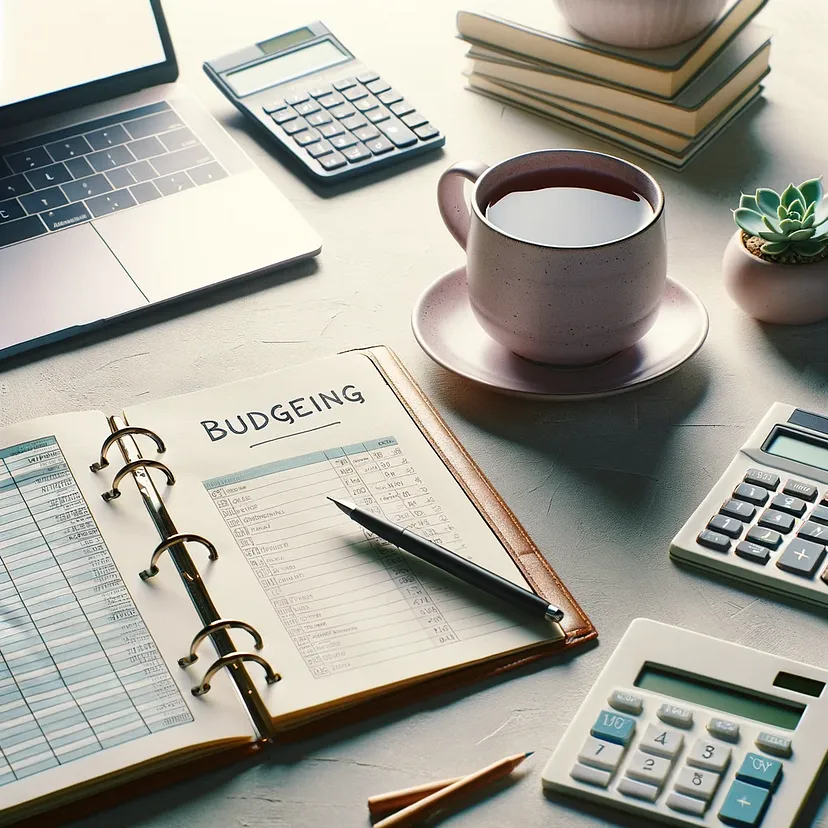Frugal Living, Sustainable Finance, and Minimalism
Don’t Forget These 29 Monthly Expenses In Your Budget
Budgeting is some of the necessary financial habits to develop. There are such a lot of budgeting methods on the market to select from, however it’s not only making a budget that may set you up for financial success. As a substitute, it’s necessary to learn how one can budget well through the use of a monthly expenses list so that you don’t ignore any costs.
With a purpose to budget well, it’s essential that we include all of our monthly bills and costs in our budgets. Unfortunately, that is a bit of harder than it sounds. And it is because there are such a lot of monthly expenses list items that we are likely to forget to incorporate in our budgets.
Hardly anyone would forget to incorporate their rent or mortgage payment of their budget, but there are such a lot of spending and money habits that are likely to slip our minds. Not to say variable expenses! Once you forget to incorporate them, it could wreak havoc in your budget.
Whether you have already got a budget that’s in need of updating or you might be creating your first one, here we’ll go over a few of these often-overlooked purchases that it is best to include in your budget so that you just, too, can budget well.
Monthly expenses list: 29 Commonly missed items
Do you’ve the items from this commonly missed monthly expenses list in your budget? Review the list below to find out what’s applicable to you and incorporate them into your budget starting today!
1. Emergency fund
Simply because a 3rd party isn’t billing you monthly for it doesn’t mean you possibly can afford to ignore your emergency fund. Construct a contribution to your emergency fund into your budget. That way, you’ll have the ability to afford any unexpected (and never budgeted for) costs that will arise.
The commonly accepted amount to avoid wasting is 3-6 months of your living expenses. But it’s possible you’ll select to incorporate extra money in your emergency fund, depending on how stable your financial situation is.
2. Retirement fund
Like your emergency fund, no person goes to force you to contribute to your retirement, but you continue to should in case you can. By adding this amount to your monthly budget, you’ll hold yourself accountable. Plus, you’ll set yourself as much as be in the very best financial position when it comes time to retire.
There are 401ks and 401k alternatives, IRAs, and other options for investing. There are many suggestions for retirement planning in case you aren’t sure where to start out.
Select the one which works best for you, or mix multiple retirement savings method.
If you’ve bank card debt, you should pay the minimum payment every month, on the very least. If you should reduce bank card debt, you’ll intend to make greater than your monthly minimum payments.
Don’t forget to incorporate these extra debt payments in your list of monthly bills. And it helps to provide you with a plan to repay your debt, including a timeline for whenever you pays off all the things you owe.
4. Quarterly or annual bills
Nearly all of bills come monthly, but not all. Comb through your past payments and take stock of all bills that you just pay less incessantly.
As an illustration, a quarterly water bill or annual skilled association membership dues. Then, calculate how much that quantity costs on a prorated, monthly basis, and include that figure in your monthly budget.
5. Home or renter’s insurance
Most householders decide to insure their belongings with homeowners insurance, and plenty of apartment buildings require renters to hold renter’s insurance.
In case you think you may forget or you should simplify, you possibly can combine your homeowner’s insurance with your mortgage payment.
Renter’s insurance costs are typically quite low, less than $20 per month in most cases. You’ll be able to consider it as a part of your monthly rent payment.
6. Medical visit co-pays and HSA
Your medical health insurance should cover the fee of most medical appointments, but it will be important to budget for co-pays. At around $25 (or more) per visit, these co-pays can add up, even in case you only go to the doctor for routine appointments.
In case you visit the doctor often, remember to estimate how repeatedly a month you go. Be sure you account for these costs in your budget.
Chances are you’ll also decide to lower your expenses in an HSA (health savings account). There are specific amounts you can contribute, and whether this is an option for you also depends on your health plan. But in case you do contribute to an HSA, don’t forget to budget for it.
7. Dental and/or vision costs
Even when you’ve medical health insurance, vision and dental expenses are sometimes not covered under that medical health insurance. Sometimes separate vision and dental insurance will cover part, but not all, of your expenses.
Be sure that to incorporate charges similar to teeth cleansing, recent glasses, and get in touch with lenses as monthly expenses list items in your budget.
First, determine is dental insurance value it for you, in addition to vision insurance, and if not, plan for the prices upfront.
8. Prescription medication
One other one in all the medical-related monthly bills that many often forget is prescription medication.
Pharmaceuticals cost the average American over $1,000 a year! While your medical health insurance will likely pay for much of that, remember to account to your out-of-pocket costs in your monthly budget.
9. Parking and toll fees
Most individuals don’t forget their automotive payments of their monthly costs, but that’s not all it costs for automotive expenses. Especially in case you commute to work, you’ll likely pay tolls and or parking fees.
Add up the full you spend on all extra fees to your automotive every month to get an accurate estimate.
10. Subscription renewals
Whether it’s your each day newspaper, a beauty box, Spotify, Hulu, Amazon Prime, Netflix, or gym memberships, there are seemingly infinite subscription and membership options.
$12.99 may not appear to be a ton of cash, but it could throw off your budget in case you forget to incorporate it. Understand how much your subscriptions cost and when the cash is due, and remember to eliminate any subscriptions or memberships you don’t use.
11. Beauty expenses
Reports vary widely on how much women spend on makeup and sweetness products, but unnecessary to say, it could be so much.
One survey found that the average woman spends $300,000 on face products over the course of her lifetime! Even in case you are on the low end of the common, you likely replenish a beauty product or two or personal care products every month.
In that case, remember to include those monthly expenses list items in your budget.
12. Cleansing supplies
Grocery store items that don’t have to be replenished every week or month are sometimes missed relating to a monthly expenses list. Cleansing supplies, laundry detergent, and the like can really add up.
Be prepared for an additional expensive grocery shopping trip once a month or every couple of months to account for these costs, and take a look at frugal grocery shopping throughout the other weeks.
13. Backup childcare
If you’ve children you almost certainly pay for childcare of some sort. Or it’s possible you’ll count on school to look at your kids for a big portion of most days.
But things interfere together with your regular scheduled childcare all the time. After they do, and it’s worthwhile to find and pay for backup childcare, you’ll be comfortable when you’ve anticipated this cost and budgeted for it.
Along with saving money for backup childcare, it is best to also save for extra expenses that come up all year long, aside from regular daycare costs.
As an illustration, extra costs for college events or tuition payments that cost greater than expected.
14. Dry cleansing
Depending in your job and your wardrobe, dry cleansing may be something you do every week, every month, or only occasionally. Irrespective of what, you’ll likely have at the least a pair of things that may require a visit to the dry cleaners, and these ought to be included in your budget, too.
Try to cut back your dry cleansing costs, but plan for them when needed.
15. Formal occasion clothes
You may not need a brand new formal dress or suit fairly often, but an occasion will probably arise now and again that requires one. While you possibly can be fashionable on a budget, formal events sometimes call for a splurge or a brand new pair of shoes, and it’s at all times best to budget for this upfront.
As well as, it’s possible you’ll want to avoid wasting up a little bit of money every month for normal clothing purchases as needed. You won’t must spend money on this every month, but perhaps just a few times a yr, so it’s good to be prepared.
16. Hobby supplies
Are you an avid gardener, knitter, baker, or something else? Hobbies can keep us sane (especially stress relieving hobbies!) and are definitely value the fee.
Just remember to account for the way much it costs to maintain up together with your hobby in your budget.
Add up the person costs that you just spend in your hobby every month (supplies, classes, etc.), after which add all of those together to understand how much to put aside monthly.
17. Donations
Giving is popular around the vacations, but many people make charitable giving a part of their budget all year long.
Whether you wish to support your alma mater, friends participating in half-marathons and the charities they’re running for, or another worthy cause, remember to remember this whenever you prepare your budget, too.
18. Gifts
Christmas and birthday gift expenses are big-spending holidays for many individuals. In the event that they are for you, it is best to consider everyone you intend to purchase a gift, even in case you’re planning on doing Christmas on a budget.
Don’t ignore other holidays where you may give gifts, too.
For instance, that Easter basket doesn’t magically arrive in your kid’s doorstep totally free, right (or does it)?
Along with gifts, there are many other ways to spend money over the vacations. From hosting a cocktail party for friends to decorating your own home, remember to include whatever “extras” you wish to spend throughout the holidays as a part of your monthly cost calculation.
Don’t ignore baking and cooking supplies, a Christmas party at work, wrapping paper, etc.
20. Fun money
Lastly, what would a budget or life be without some room for unexpected fun?
By putting aside a fun money amount dedicated to spontaneous events, like a day trip to the beach, drinks with friends, or a date night together with your husband, you’ll have the ability to enjoy these activities without stressing over whether or not they’ll break your budget.
Things like entertainment, shopping purchases, or anything that comes up throughout the month are necessary to incorporate in your budget.
21. Specific utilities
There are several specific utilities it is best to add to your monthly expenses list. A few of them could also be bundled together in a single bill, or they could arrive individually. Either way, don’t ignore them!
- Water
- Cable (or cable alternatives)
- Electricity
- Heating and air-con
- Cellular phone bill
- Web
22. Gas
Does the amount of cash you spend on gas to your automotive change from month to month? In case your commute changes, you begin carpooling, otherwise you travel, then it’s worthwhile to account for the changes in your budget. Transportation costs are easy to overlook, but they’re unavoidable.
Costs also apply in case you take public transportation. Chances are you’ll still have different costs for the bus, subway, or Uber from month to month.
23. Life insurance
In case you’re accustomed to the importance of life insurance, then you definately will likely have a monthly cost for this. Depending on the variety of insurance you’ve, your monthly rates will vary quite a bit.
Discover what you might be spending every month to your life insurance premium, and don’t forget to incorporate it in your expenses.
24. Pet care and supplies
If you’ve pets, your list of monthly bills shouldn’t be complete without adding on this cost. Account for the fee of pet food, vet bills, supplies, etc.
Chances are you’ll need to arrange a separate fund just to your pets. That way, you possibly can afford to purchase your dog a brand new toy or leash every so often.
And have in mind that pet care costs may vary by month. Especially in case you buy pet food in bulk and only visit the vet a couple of times a yr. Plan upfront for the months that cost more.
In case you are a primary time dog owner or a primary time cat owner, research costs upfront so you possibly can add them to your budget.
25. Traveling funds
In case you are someone who travels incessantly for work or you simply have a vacation coming up, you’ll need to incorporate traveling funds in your vacation budget plans. Traveling costs can find yourself being quite expensive, so you possibly can split the savings over just a few months, that way, it doesn’t appear to be as much.
Consider that traveling can often cost greater than you’re thinking that, with airfare, hotel costs, dining out during your trip, etc., so it’s best to overbudget quite than budget less money.
26. HOA fees and property taxes
Since all these costs will not be at all times monthly costs but sometimes every quarter for HOA fees and even once a year for property taxes, it’s easy to forget them.
As a substitute, you possibly can put aside a little bit of money for them every month so that you’ll be ready when the fees are due.
HOA (homeowners association) fees don’t apply to everyone, but when you’ve them, make certain you’re aware of the quantity.
Property taxes apply to all homeowners.
27. Home repairs and costs
Home repairs will be anything from pest control to saving up for unexpected costs like plumbing repairs. Lower your expenses every month for your own home for each large and small costs.
Consider things like painting, remodels, a brand new roof, or your a/c or heater breaking that it’s possible you’ll need savings for.
28. Sinking funds
Your list of monthly expenses wouldn’t be complete without sinking funds. If you’ve an enormous expense coming up in the subsequent yr or the subsequent few years, start saving now.
You’ll be able to add a certain amount of cash to your sinking fund every month so you’re ready when the fees come up, similar to an expensive vacation, buying a house or rental property, etc.
Alternatively, create sinking funds categories and save for several various things.
29. Auto insurance
If you’ve a automotive, then it’s worthwhile to have auto insurance. The standard cost for automotive insurance is about $168 for full coverage each month, though costs can vary.
There are a lot of options for how often you pay car insurance, from monthly to a few of times a yr and even yearly. You’ll be able to determine what works best to your budget.
Expert tip: Check your bank statements for accuracy often
There are various costs that it could be easy to overlook in your monthly budget. As you glance through this list, take into consideration which of them apply to you. Not all of them will and there could also be others that aren’t on the list.
To avoid being caught unprepared for extra monthly costs, look back over your bank and in addition bank card statements to see if there may be any spending you didn’t account for.
Budgeting tricks to stay on top of your monthly expenses
All of those costs are essential to recollect in your budget and monthly expenses list.
But don’t forget crucial thing – it’s worthwhile to make a budget to start with! Listed here are some tricks to make it easier to create an incredible budget and plan for the unexpected.
Select the suitable budget for you
There are several ways that you could make a budget, from the 80/20 budget to using the very best budget templates. Find a technique that is simple so that you can use, even when this takes some trial and error.
You’ll must divide your expenses by budget category, and then you definately can determine your average monthly cost of expenses. A worksheet, budget calendar, or budget calculator can be immensely helpful in this case.
Don’t forget to incorporate the financial goals you’re working toward, all of your expenses, and make a plan for what you’ll do with any extra cash.
Account for changes to your budget
Remember, your budget shouldn’t be going to look the identical every month. In spite of everything, you’ve different obligations, responsibilities, and different plans and events to attend every month.
Use the ideas above to find out what you may normally forget so as to add to your budget, and spend a while excited about what your month looks like before you create a budget you should persist with.
What are examples of monthly expenses?
There are many examples of monthly expenses, similar to rent or a mortgage, utilities, and groceries.
Nevertheless, there are a lot of less obvious costs which might be easy to ignore and can then create budget challenges. These include prescriptions and health costs, birthday gifts, and expenses which might be quarterly or annual.
Quite than forgetting about these expenses, you possibly can construct them into your budget every month with sinking funds and an in depth plan to your spending.
How do I plan for variable vs fixed expenses in my budget?
You’ll be able to plan for variable vs fixed expenses in your budget by utilizing an organized spreadsheet or budgeting app and in addition saving up for variable expenses.
Fixed costs are the identical every month, and variable ones may cost different amounts every time.
As an illustration, your rent payment might be at all times the identical, but your water bill or light bill may vary every month.
To account for variable costs, you possibly can put aside the common amount that every category costs and assume you’ll spend that quantity.
Nevertheless, it’s safer to plan for the fees to cost greater than expected, so that you’ll have the funds for.
Wondering what to do with savings whenever you overprepare? You’ll be able to save any excess in a savings account to your variable expenses. When things cost greater than you thought they’d, you should utilize the cash in that account to cover the difference.
What are average expenses for a household?
The common monthly expenses for a household total about $5,111 a month. There’s so much to pay for every month for the common household, from housing to food costs, etc.
Although your individual costs may vary for your personal household, it’s a great idea to know the common cost that you just spend on necessities and extras every month. That way, you possibly can make plans for the way much to avoid wasting and what you possibly can afford in the longer term.
What’s the common person’s monthly expenses?
According to the consumer expenditures report from the U.S Bureau of Labor Statistics, average monthly expenses are about $3,405 each month for a single person. That said, your personal spending may or may not match this.
One method to make sure is to total up how much you spent within the last yr or so after which see what you usually spend every month and what you spend in costlier months, similar to in December for holidays.
You’ll be able to attempt to lower your expenses by spending less on non-essentials and in addition being prepared for commonly forgotten expenses upfront so that you don’t turn to bank cards to pay them.
How will you create a more accurate budget using your list of monthly expenses?
To create a more accurate budget using your list of monthly expenses, take into consideration what’s not working well for you.
It’s easy to ignore certain expenses when calculating your monthly budget. Why? One reason expenses can slip your mind is in case you don’t write down your budget, item by item.
In case you think you might be following a budget, however it’s not written down, you very likely will not be sticking to whatever it’s you’re thinking that you might be following.
People also often forget to incorporate the complete cost of certain expenses because they depend on mental calculations about how much something costs. Once you do that, you possibly can find yourself underestimating the true amount you spend.
Lastly, many individuals don’t account for sporadic spending or things that aren’t billed monthly. Quarterly or annual fees can surprise you and add up in case you forget to prorate them and include them in your monthly budget.
In case you are battling making a budget, there are many tools available to place you on the suitable track.
As a primary step to creating an accurate budget, review the commonly missed expenses we cover in this text. In case you remember to incorporate these in your budget going forward, you’ll be that much closer to having an accurate and useful budget.
Articles related to a monthly expenses list
In case you enjoyed reading this, you’ll love these other articles about expenses and budgets!
Overlook these monthly bills no more!
Budgeting is an art. It takes time to fine-tune your budget so that you just’ve properly accounted for your entire expenses at the tip of the month.
Hopefully, with these reminders, you’ll remember to incorporate your entire monthly expenses list items in your budget. Even these often missed ones. Doing this can make it easier to to attain more financial success and make it easier to know how one can stop spending money on belongings you don’t need and make room for purchasing necessary things.





